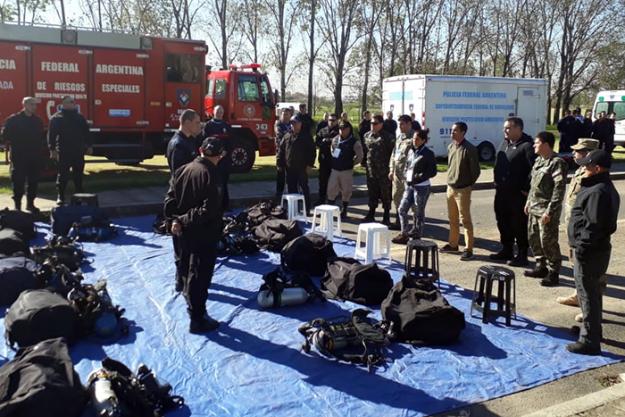
Twenty-four first responders advanced their skills in managing chemical emergencies at the advanced course for countries from Latin America and the Caribbean
THE HAGUE, Netherlands — 31 May 2018 — Twenty-four first responders improved their skills in managing chemical emergencies at the advanced course for countries from Latin America and the Caribbean, held in Buenos Aires, Argentina, from 21 to 26 May.
The representative of the Ministry of Foreign Affairs and Worship of Argentina, Ms Mariela Fogante, stressed in her opening remarks the necessity to confront the threat of non-State actors using chemicals as weapons, and expressed that “all countries have to be well prepared to respond to chemical incidents of different nature in a constantly changing security environment”.
The agenda of the Seventh Regional Advanced Assistance and Protection Course and Exercise on Chemical Emergency Response covered the use of individual protective equipment, as well as containment, rescue and decontamination procedures.
Several scenarios of increasing complexity helped to enhance the first responders’ skills to manage complex chemical emergencies.
The course built on the competencies that the participants had gained during the basic course in Panama in April 2018.
The event was organised by the Argentine National Authority to the Chemical Weapons Convention (CWC), in cooperation with Federal Fire-Fighter Superintendence of the Argentine Federal Police, and the Technical Secretariat of the Organisation for the Prohibition of Chemical Weapons (OPCW).
Participants came from 17 States Parties to the CWC: Argentina, Barbados, Bolivia, Brazil, Chile, Colombia, Costa Rica, Cuba, Dominican Republic, Ecuador, Honduras, El Salvador, México, Panamá, Peru, Spain and Uruguay.
Background
As the implementing body for the Chemical Weapons Convention, the OPCW oversees the global endeavour to permanently and verifiably eliminate chemical weapons. Since the Convention’s entry into force in 1997 – and with its 192 States Parties – it is the most successful disarmament treaty eliminating an entire class of weapons of mass destruction.
Over 96% of all chemical weapon stockpiles declared by possessor States have been destroyed under OPCW verification. For its extensive efforts in eliminating chemical weapons, the OPCW received the 2013 Nobel Peace Prize.
